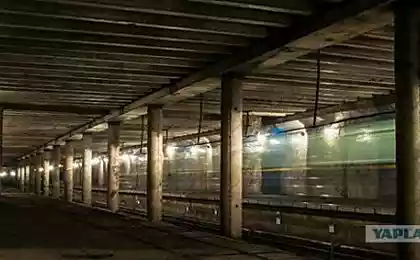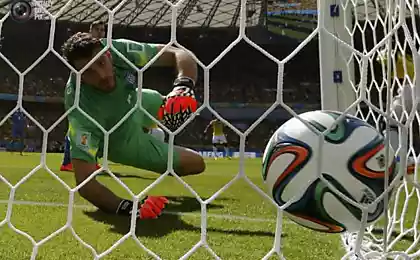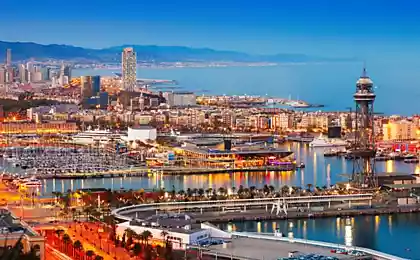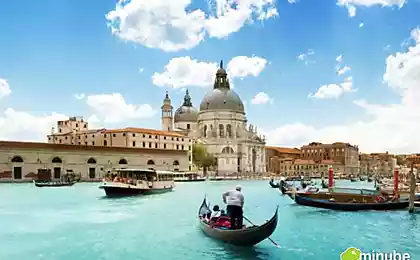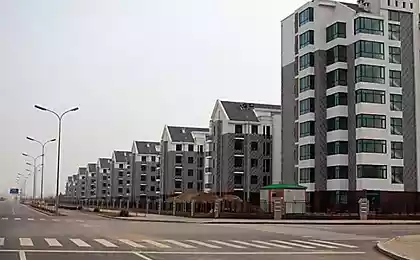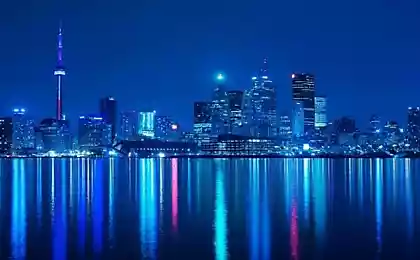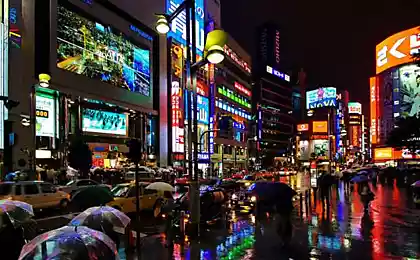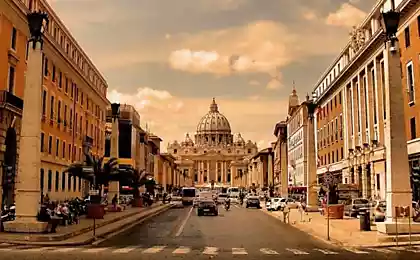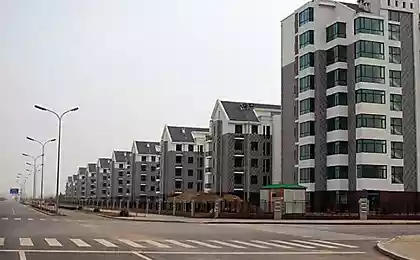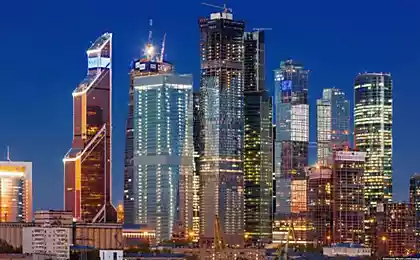1358
Subways cities in the world (22 photos)
Subways cities
1. London, England
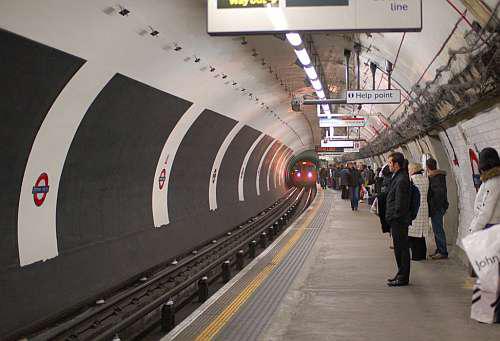
London Underground - the largest and oldest in Europe. Its first branch was opened in 1863. Today London Underground carries around a billion passengers a year, and the length of routes exceeding 250 miles (about 410 kilometers). London Underground is also connected to various rail services and delivers passengers to the nearby areas. There is also a London Underground system is unmanned, "Metro Light", which takes passengers over the Thames and surrounding areas, opening them to scenic views.
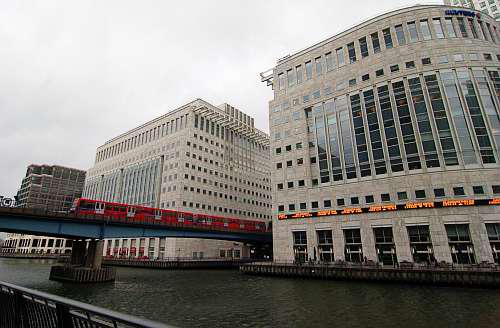
Highlights: Comfortable seating, liquid crystal displays from the ceiling stations, which show the number of minutes until the next train, an unusual decoration of some stations and convenient turnstiles.
2. Paris, France
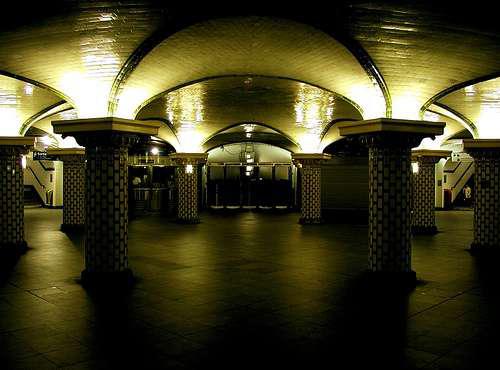
The Paris metro - the second oldest subway in Europe. Its discovery dates back to 1900 year. Paris Metro helps 1, 365 billion people, does the reading your favorite newspaper, get to the right place for them. The Paris metro has been excellent transport system for such a large city through 380-minute stop and more than 130 miles (210 kilometers) of ways.
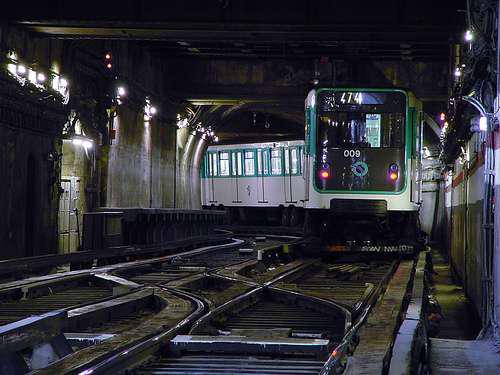
Highlights: Excellent coverage. In fact, any building in Paris is no more than five hundred meters from the nearest metro station. Most of the stations have been designed in a unique art style. Modest pay the fare.
3. Moscow, Russia
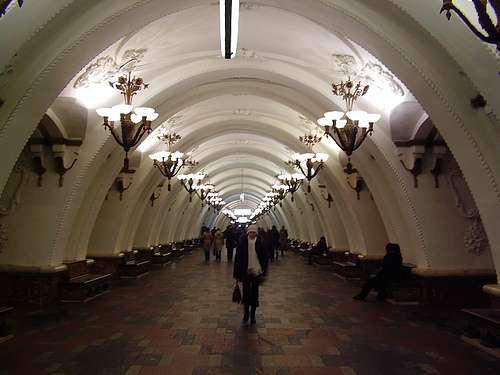
Moscow Metro - the most visited in the world. Every year it carries more than 3, 2 billion people at 12 branches and through the turnstiles on the day of the 174 stations of passes up to 8 million passengers. Basically the Moscow metro trains run underground, but sometimes are chosen on the surface in order to cross the bridge on the river or ride the passengers near the park.
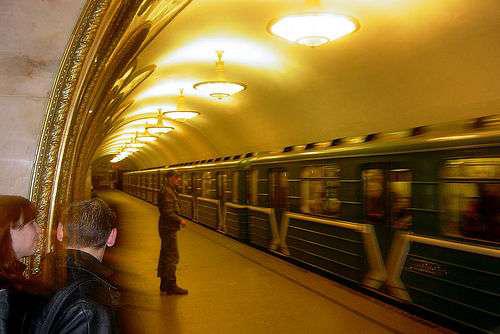
Basic moments. Peerless architecture. At least 44 stations of the Moscow metro were named architectural landmarks. A huge number of trains - during rush hour interval between trains is only 90 seconds. Furthermore, this is the fastest in the underground world. The speed of the train reaches 90 km / h.
4. Madrid, Spain
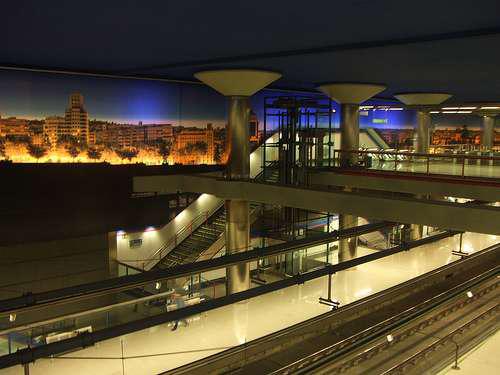
Underground transport system of Madrid - the second largest in Europe and sixth in the world. Already built 150 miles of paths, and another 30 are expected to pass later this year. In addition, the Madrid Metro - the most dense network of underground transport in the world.
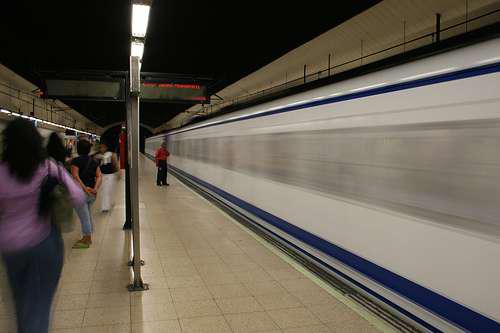
Highlights: Very clean subway system was introduced in which the environmental cleanup. Fast trains and affordable prices. Also, enormous progress in the development of the metro. More than 50 miles of paths have been laid over the last decade. Today stations.
5. Tokyo, Japan
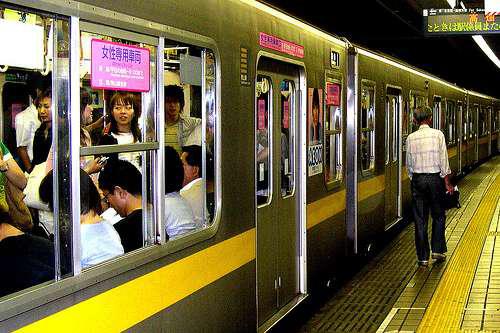
Tokyo subway can be rightly called the most complicated and technically advanced in the world underground. Every year, it carries 2 Millard 8 people to 282 meters underground stations. Except for the subway system in Tokyo subway adjacent line of light metro «Toden Arakawa» monorail and zoo Ueno.
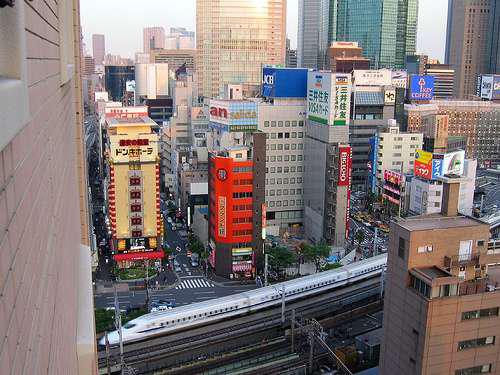
Highlights: Completely clean. Trains arrive to the nearest second and open their doors exactly opposite the special notes. Sitting in the car heating. The names of the stops are announced in two languages: Japanese and English. Some stations have supermarkets and many other services for passengers.
6. Seoul, Korea
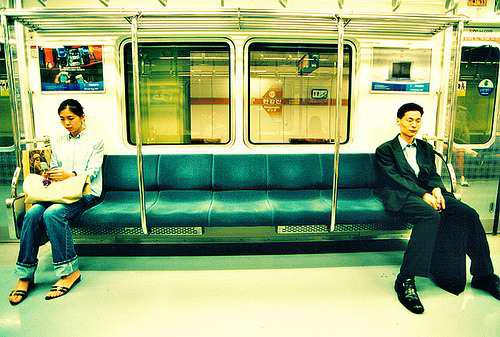
Seoul Subway is one of the busiest underground railways in the world. Daily it carry up to 8 million passengers. Also, it is one of the biggest in the world: the length of the routes is about 180 miles, mostly lies under the ground, but about 30% have taken out to the surface.
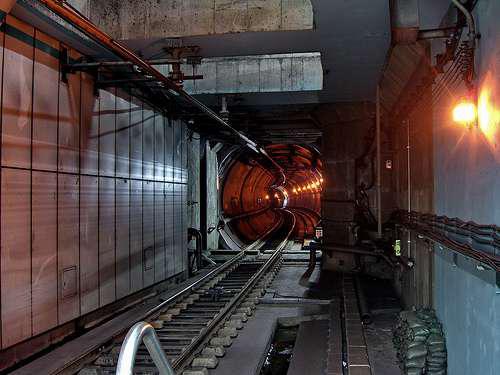
Highlights: The beautiful architecture and the incredible growth of the transport system in recent years. Convenient payment special prepaid cards.
7. New York, USA
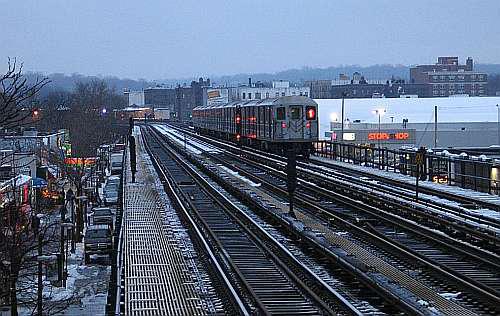
New York underground transport system - one of the most advanced systems in the world. When it opened in October 1904, the system has 28 stations. Today, there are already 462. The Daily, it carries up to 5 million people.
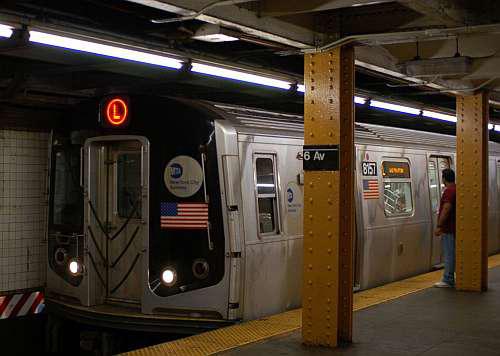
Highlights: Several parallel paths allows you to go several trains simultaneously. New York subway system is testing a liquid crystal display that will show the time until the arrival of the next train. Dry cleaning. The excellent artistic performance stations across the transport network.
8. Montreal, Canada
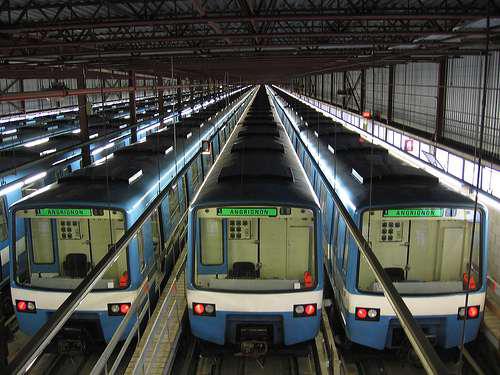
Montreal subway already can be attributed to a relatively new system. Its opening took place in 1966. It is quite small, the length of the routes of 38 miles, passing through 65 stations on four lines. Yet it is in its own unique and contemporary style was borrowed from the Paris Metro.
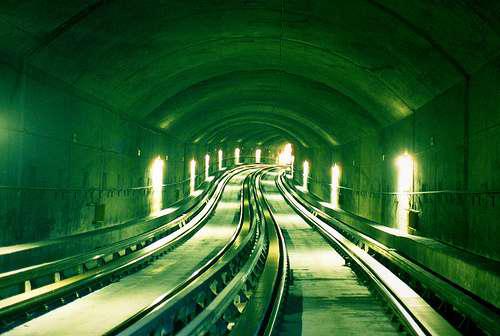
Highlights: The diverse architecture of stations: the design of each individual station was designed by the architect. The pleasant and comfortable travel due to the rubber surface of the rail, which helps to avoid unpleasant sounds during a trip, and do the trains run frequently and are very comfortable.
9. Beijing, China
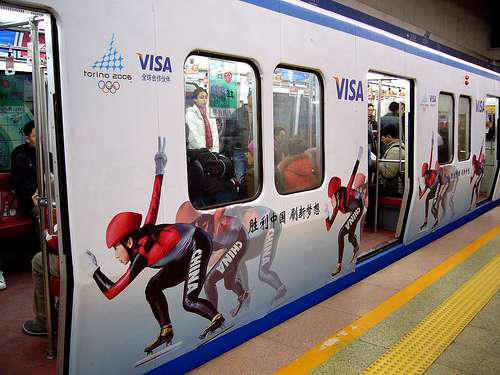
Beijing subway, connecting Beijing and the suburbs, as a relatively young, but with huge development plans, to which allocated about eight billion dollars.
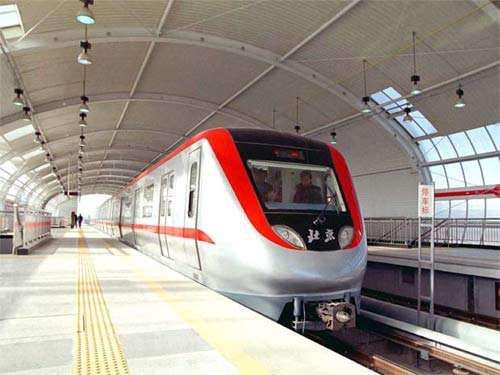
Highlights: Easy to navigate, even if you are a foreigner, cheapest fare. Interesting architectural findings on new lines. It is an ambitious development project.
10. Hong Kong
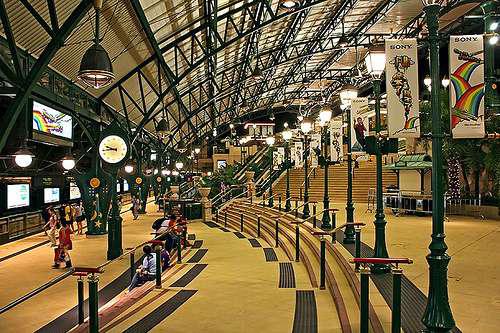
Hong Kong subway was opened in 1979 and has not had time to evolve much in terms of transport distance: length of track is only 56 miles, but the metro transports up to 2, 6 million people daily. But the subway system based on its big brother to the British Isles.
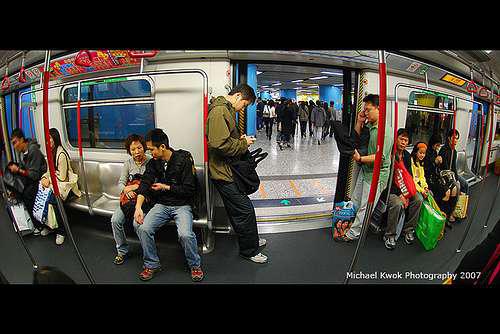
Highlights: Efficiency. Fast service. A high-tech trains. Extraordinary passenger traffic. Modern and clean, air-conditioned trains. Convenient passage turnstiles using contactless cards.
11. Sao Paulo, Brazil
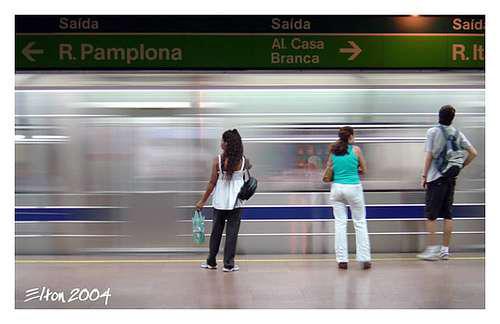
It's underground transport system was the first in Brazil. In partnership with a large company «Companhia Paulista de Trens Metropolitanos» they laid 180 miles (300 km) tract. Now the São Paulo metro wheeling 3, 7 million people daily.
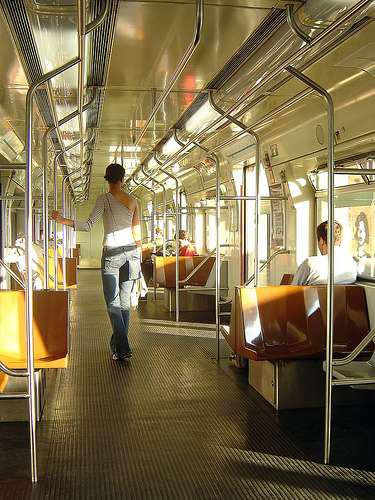
Highlights: Known as one of the cleanest and safest systems in the world. Cheap fares.
1. London, England

London Underground - the largest and oldest in Europe. Its first branch was opened in 1863. Today London Underground carries around a billion passengers a year, and the length of routes exceeding 250 miles (about 410 kilometers). London Underground is also connected to various rail services and delivers passengers to the nearby areas. There is also a London Underground system is unmanned, "Metro Light", which takes passengers over the Thames and surrounding areas, opening them to scenic views.

Highlights: Comfortable seating, liquid crystal displays from the ceiling stations, which show the number of minutes until the next train, an unusual decoration of some stations and convenient turnstiles.
2. Paris, France

The Paris metro - the second oldest subway in Europe. Its discovery dates back to 1900 year. Paris Metro helps 1, 365 billion people, does the reading your favorite newspaper, get to the right place for them. The Paris metro has been excellent transport system for such a large city through 380-minute stop and more than 130 miles (210 kilometers) of ways.

Highlights: Excellent coverage. In fact, any building in Paris is no more than five hundred meters from the nearest metro station. Most of the stations have been designed in a unique art style. Modest pay the fare.
3. Moscow, Russia

Moscow Metro - the most visited in the world. Every year it carries more than 3, 2 billion people at 12 branches and through the turnstiles on the day of the 174 stations of passes up to 8 million passengers. Basically the Moscow metro trains run underground, but sometimes are chosen on the surface in order to cross the bridge on the river or ride the passengers near the park.

Basic moments. Peerless architecture. At least 44 stations of the Moscow metro were named architectural landmarks. A huge number of trains - during rush hour interval between trains is only 90 seconds. Furthermore, this is the fastest in the underground world. The speed of the train reaches 90 km / h.
4. Madrid, Spain

Underground transport system of Madrid - the second largest in Europe and sixth in the world. Already built 150 miles of paths, and another 30 are expected to pass later this year. In addition, the Madrid Metro - the most dense network of underground transport in the world.

Highlights: Very clean subway system was introduced in which the environmental cleanup. Fast trains and affordable prices. Also, enormous progress in the development of the metro. More than 50 miles of paths have been laid over the last decade. Today stations.
5. Tokyo, Japan

Tokyo subway can be rightly called the most complicated and technically advanced in the world underground. Every year, it carries 2 Millard 8 people to 282 meters underground stations. Except for the subway system in Tokyo subway adjacent line of light metro «Toden Arakawa» monorail and zoo Ueno.

Highlights: Completely clean. Trains arrive to the nearest second and open their doors exactly opposite the special notes. Sitting in the car heating. The names of the stops are announced in two languages: Japanese and English. Some stations have supermarkets and many other services for passengers.
6. Seoul, Korea

Seoul Subway is one of the busiest underground railways in the world. Daily it carry up to 8 million passengers. Also, it is one of the biggest in the world: the length of the routes is about 180 miles, mostly lies under the ground, but about 30% have taken out to the surface.

Highlights: The beautiful architecture and the incredible growth of the transport system in recent years. Convenient payment special prepaid cards.
7. New York, USA

New York underground transport system - one of the most advanced systems in the world. When it opened in October 1904, the system has 28 stations. Today, there are already 462. The Daily, it carries up to 5 million people.

Highlights: Several parallel paths allows you to go several trains simultaneously. New York subway system is testing a liquid crystal display that will show the time until the arrival of the next train. Dry cleaning. The excellent artistic performance stations across the transport network.
8. Montreal, Canada

Montreal subway already can be attributed to a relatively new system. Its opening took place in 1966. It is quite small, the length of the routes of 38 miles, passing through 65 stations on four lines. Yet it is in its own unique and contemporary style was borrowed from the Paris Metro.

Highlights: The diverse architecture of stations: the design of each individual station was designed by the architect. The pleasant and comfortable travel due to the rubber surface of the rail, which helps to avoid unpleasant sounds during a trip, and do the trains run frequently and are very comfortable.
9. Beijing, China

Beijing subway, connecting Beijing and the suburbs, as a relatively young, but with huge development plans, to which allocated about eight billion dollars.

Highlights: Easy to navigate, even if you are a foreigner, cheapest fare. Interesting architectural findings on new lines. It is an ambitious development project.
10. Hong Kong

Hong Kong subway was opened in 1979 and has not had time to evolve much in terms of transport distance: length of track is only 56 miles, but the metro transports up to 2, 6 million people daily. But the subway system based on its big brother to the British Isles.

Highlights: Efficiency. Fast service. A high-tech trains. Extraordinary passenger traffic. Modern and clean, air-conditioned trains. Convenient passage turnstiles using contactless cards.
11. Sao Paulo, Brazil

It's underground transport system was the first in Brazil. In partnership with a large company «Companhia Paulista de Trens Metropolitanos» they laid 180 miles (300 km) tract. Now the São Paulo metro wheeling 3, 7 million people daily.

Highlights: Known as one of the cleanest and safest systems in the world. Cheap fares.

